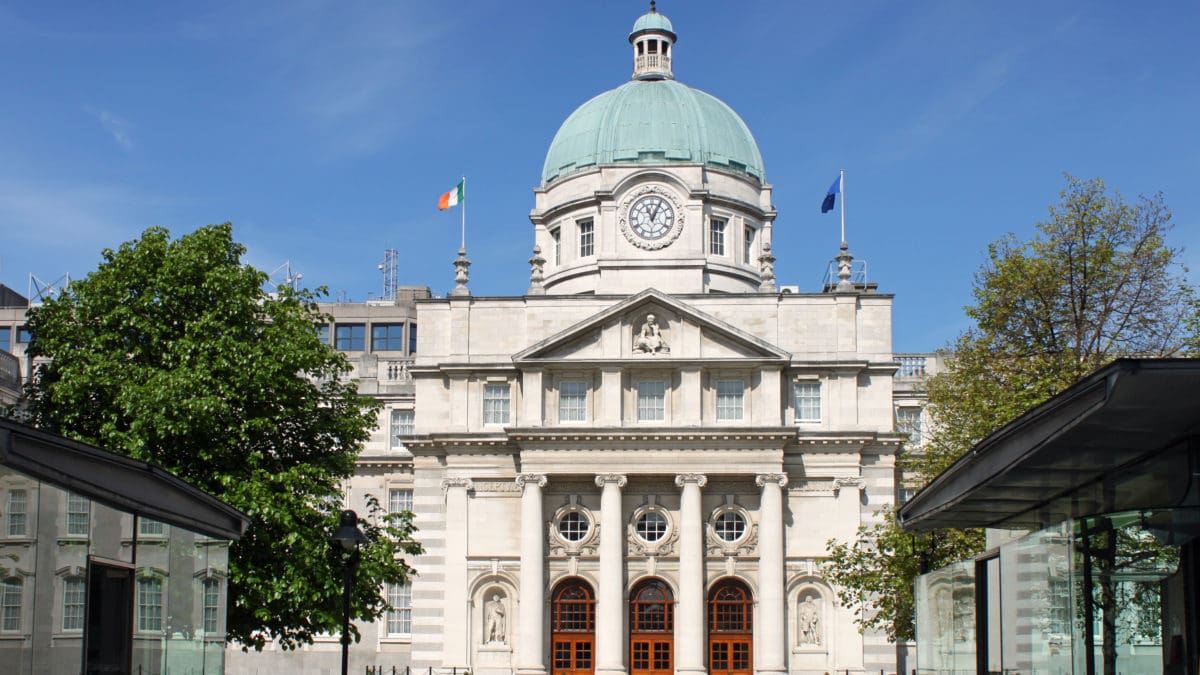New Government has chance to make medicines innovation count


New Government has chance to make medicines innovation count, writes Bernard Mallee
Micheál Martin takes charge of a Government at a time of opportunity and uncertainty for Ireland and for the world. The Taoiseach’s rise to the top job is a story of passion and persistence. His 30-year career in politics has been marked by reform and achievement in the four Departments in which he served as Minister and as Fianna Fáil leader. In Education, Health and Enterprise, he is known for backing the research and development agenda and for tackling major illnesses like heart disease, stroke and cancer.
Now, the Taoiseach will lead a partnership Government whose primary mandate will be to rebuild a country ravaged by COVID-19. In that endeavour, he can be assured of the support of the originator biopharmaceutical industry.
The Taoiseach will know the importance of medicines innovation. Just a few miles south-east of where he grew up in Turner’s Cross is Ringaskiddy – one of Europe’s most important biopharmaceutical manufacturing clusters. There, big-name multinationals like Pfizer, Novartis, Janssen and BioMarin are making medicines for global supply. In other parts of the county, in places like Little Island, Dunderrow, Brinny and Carrigtwohill, companies such as MSD, Eli Lilly, Gilead and AbbVie are helping to put Cork on the global biopharmaceutical innovation map.
Where once companies like Ford, Verolme, Sunbeam and Dunlop dominated Cork’s enterprise landscape, now it is the home of medicines. What happens at Cork’s biopharmaceutical plants makes a difference to people’s lives – adding months, sometimes years, to life expectancy, improving quality of life and generating economic activity. As the pandemic has unfolded, the industry, in Ireland and globally, has been at the forefront of the response in three key areas: science, supply and support. It is searching for vaccines and treatments, ensuring continuity of care by making medicines and getting them to patients, and contributing in-kind and financially to voluntary organisations, hospitals and patient groups. Working in partnership with the last Government, our industry helped to deal with the pandemic.
Over the years, there has been a drop in major causes of death like circulatory system diseases and cancer. The Taoiseach, as a former Health Minister, can claim credit for much of that progress. So, too, can medicines innovation. Between 2008 and 2018, the mortality rate for heart attacks dropped 51%. The mortality rate for stroke fell 34%. Between 1994 and 2013, cancer survival rates rose from 40% to 61% for men and from 38% to 60% for women. Since 2007, life expectancy has increased by almost 2.5 years. Women will live to 84. Men can expect to see just past 80.
Despite the economic and public health impact of the biopharmaceutical sector, the new Programme for Government makes no mention of it. Even with 45,000 jobs and an annual contribution to the economy of over €14 billion, the omission of the industry, both present value and what is to come, is puzzling. Still, as the new Government takes office, there is an opportunity to fix what is broken and seize the opportunity of fast-moving medicines innovation.
The most urgent challenge is new medicines funding. For almost a year, the last Government refused to provide new funding to the Health Service Executive for new medicines. That has created a backlog of well over a dozen new medicines denied to patients, despite having met clinical effectiveness and value for money tests. Meanwhile, patients in almost all other western European countries can get these same medicines. So, why can’t our own?
Clinically and reputationally, this is really bad for Ireland. As well as the health impact, it makes no sense that medicines made in Ireland, some of them in Cork, are used by other countries’ health systems before our own. It is what we call the ‘innovation paradox’: major investments by biopharmaceutical companies in manufacturing sites but then what gets made there often does not benefit patients who might live just a few miles down the road.
Our solution is fair and simple: joint industry-State funding for new innovative medicines. In its first Budget, the Government should put new funding for new medicines on the table. That can be the basis for a new Agreement – a joint funding model recognising that both industry and the State share a responsibility to give patients the same treatment options as their peers in western Europe. The industry has, over the years, cut prices and provided significant cash rebates. That is a model on which to build – provided that new money is reinvested in new medicines. With the current Agreement on pricing and supply set to expire, now is the time to act. We look forward to engaging with the new Minister for Health, Stephen Donnelly, and the new Minister for Public Expenditure and Reform, Michael McGrath.
Around the world, and in Ireland, biopharmaceutical innovators are bringing new therapies to patients that are transforming the trajectory of disease. One of the most important breakthroughs is the emergence of cell and gene therapies (CGTs). Cell therapies can treat potentially fatal blood cancers by reinfusing patients with their own engineered immune cells to tackle the illness. In the longer run, companies will likely target more challenging solid tumours. At the same time, scientists are making progress on gene therapy by replacing faulty DNA to cure genetic diseases. Extraordinary clinical results in recent years have led to an explosion in the number of new companies developing CGTs. Many of them, including Pfizer, Novartis, Gilead, Takeda, Astellas, Janssen, Biogen and Bayer, have operations in Ireland. Ireland should capitalise on the CGT opportunity.
The Programme for Government promises a “high-level review of the Irish economy led by the Department of the Taoiseach”. There, our industry believes it can make a contribution – preventing and tackling “future public health challenges”. If the new Government and the industry take the right partnership steps now, the investments that have been made over several decades can be secured and scaled. Without structured dialogue – something like the UK’s Life Sciences Strategy, for example – there is a real risk that the gains we have made will be lost.
As we emerge from the pandemic, all eyes are on what comes next. This time has been hard on families and on communities. But we have rallied and we will recover. The Taoiseach is faced with a daunting task, as well as a major opportunity. In both, he has our full support. We wish him well.
ENDS


